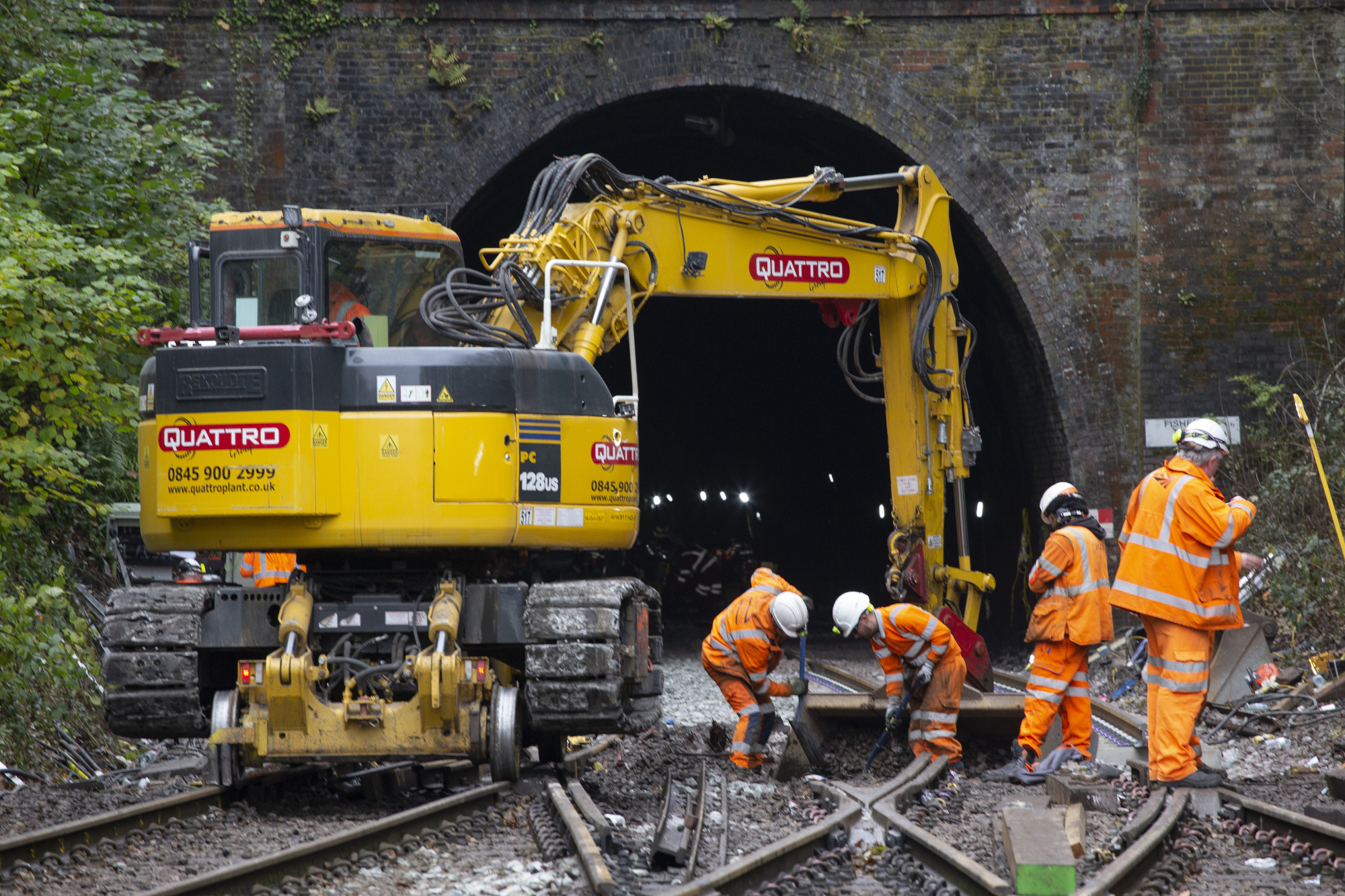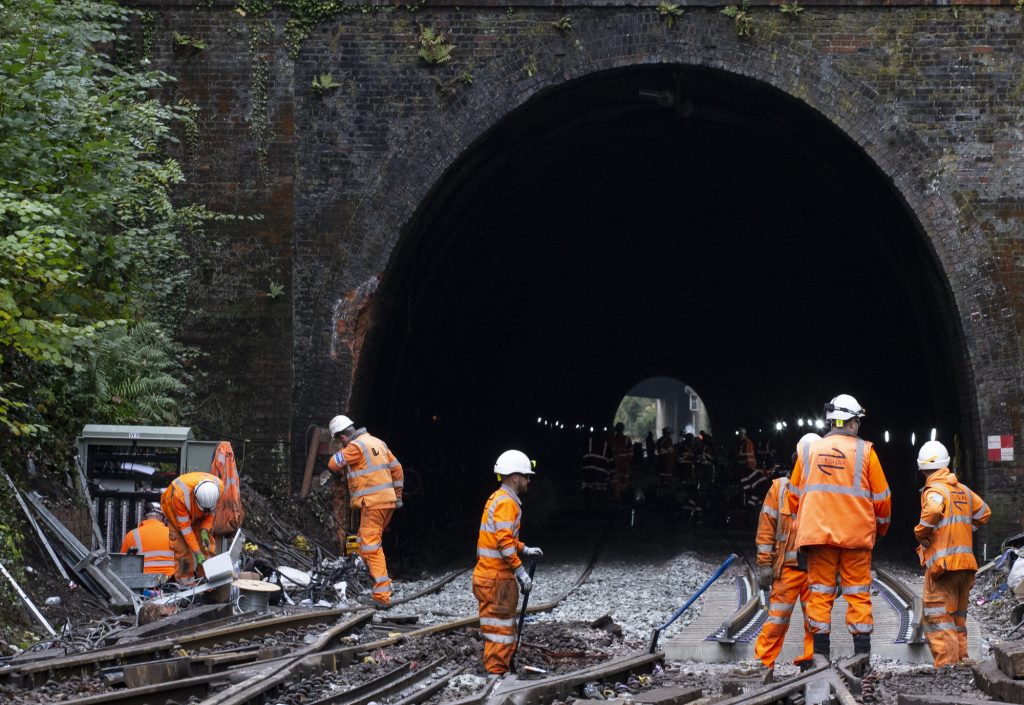Network Rail, South Western Railway and Great Western Railway joint statement: Salisbury railway to reopen fully from Tuesday, 16 November

Following last week’s accident, Network Rail, South Western Railway and Great Western Railway today announce that trains through Salisbury will begin running again on Tuesday, 16 November.
The rail industry has been working together to clear the line and make it safe to run trains again, with repair works set to be complete by Monday. Following two weeks of the line being closed, Network Rail will spend a full day using its leaf-busting Rail Head Treatment Trains to jet wash the tracks free of any debris or leaf mulch. A series of test trains will also run on the new infrastructure to check it is operating correctly before passenger services begin on Tuesday morning.
Network Rail’s route director for Wessex, Mark Killick, said: “I really appreciate how patient everyone has been with us over the past week and a half, from customers who have had their journeys disrupted, to our neighbours who have had cranes outside their houses, London Road closed for a period, and people working 24 hours a day to repair the railway right in the middle of their neighbourhood.
“That work is going to continue until Monday, as we finish replacing damaged equipment and making sure the railway is fit for action again.
“Our railway is one of the safest in the world and when a rare incident like this happens, we have to find out exactly what went wrong. That’s why we’re working closely with the Rail Accident Investigation Branch, British Transport Police and Office of Rail and Road on their investigations and we will be transparent and open with everyone when we know more about exactly what caused this.”
Claire Mann, Managing Director of South Western Railway, said: “This has been a difficult time for all those affected by last Sunday’s incident and I’d like to thank the Salisbury community, our customers and colleagues for all their help both on the night and over the last ten days.
“Many people rely on our services every day and I am sorry for the disruption this incident has caused and am grateful for their ongoing patience. We have worked tirelessly with Network Rail and our industry partners to reopen the railway and I look forward to welcoming customers back to our services on Tuesday”.
Mark Hopwood, Managing Director of Great Western Railway, said: “Our staff have been overwhelmed by the support shown by customers and the community over the past ten days. The incident last Sunday was challenging for everyone involved, and we are grateful for everyone’s support and patience in the days and weeks since.
“The rail industry has put every effort into reopening the railway as soon as possible, and we’re looking forward to customers returning from 16 November.”
The accident involving an SWR train and a GWR train, occurred on Sunday 31 October, blocking the line just outside the Fisherton Tunnel, where routes from London and Southampton merge on their way into Salisbury.
Since then, the line between Salisbury and Andover has been blocked, with SWR and GWR providing alternative travel arrangements through diversions or rail replacement services.
Network Rail has been working with partners from across the industry to reopen the railway. So far, five damaged train carriages have been craned out from the accident site, which is in a cutting below the level of the surrounding area near London Road, in the Fisherton area of Salisbury. Almost 1,500 sleepers – the cross-ties that support the track – are being replaced, along with three sets of points, that allow trains to move from one track to another. In addition, 1,000 yards of new track is being laid in the tunnel to provide a smoother ride for passengers.
Signalling equipment including track circuits – which tell us where trains are – are also being repaired, replaced and thoroughly-tested before the line reopens.
To support passengers’ journeys, buses are running from Salisbury to Andover for South Western Railway customers, and from Salisbury to Romsey for Great Western Railway, with tickets accepted on diversionary routes via Reading.
While London Road was closed over the bridge, a minibus provided transport for neighbours who needed to get round the block, and two local meetings were held to keep the community updated on the work.

